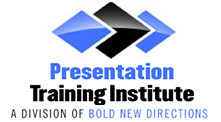- Explain your message to a child.
Identifying a clear message and purpose is the most important component of any presentation. This exercise is all about learning to convey your message in a way that is simple and clear. If a child is able to understand it, your audience will too. Stay away from complicated jargon, fancy buzz words, and fluff sentences and practice delivering your message clearly, concisely, and simply.Â
- Develop a daily writing habit.
Journaling is a very useful way to learn how to express your thoughts and feelings clearly. If you take a little time each day to jot down your thoughts, ideas, dreams, or fears, you will become more comfortable with verbally expressing them. Learning to express yourself happens much faster by putting thoughts down on paper.
- Watch famous presentations.
People are naturally visual learners and there is no better way to learn than by watching the pros. Take a few minutes each day to watch a great speaker. Take notes on what they did well and why they were so captivating. Consider the way in which they delivered their presentation. Did they start with a story? How did they grab your attention? What was it about the presentation that kept you interested?
- Record yourself.Â
A great way to critique yourself is by recording yourself. Try having a simple conversation with a family member perhaps about a shirt they are wearing or what you are having for dinner. Record the conversation and pay attention to your tone, inflection, pauses, and fluff words. Consider areas that need improvement.Â
- Practice in front of a mirror.
Your body language is just as important as the words you speak during your presentation. Confident posture, eye contact, and purposeful movement are important for connecting and engaging with your audience. Practice your presentation in front of a mirror so you watch your body language and practice your stance and eye contact.Â
- Practice your breathing.Â
Breathing is one of the most important and often overlooked, aspects of public speaking. When you get nervous, your breathing becomes irregular and your body begins to tense up. Practice deep breathing exercises each day to learn how to calm yourself down and cope with public speaking anxiety.Â
- Practice your Q&A.
You don’t want to get caught off guard by a challenging question. Although there is no way to know exactly what questions will be asked, you can still brainstorm potential questions beforehand and prepare your answers. Do this with a friend or family member so it feels more like an authentic conversation.
